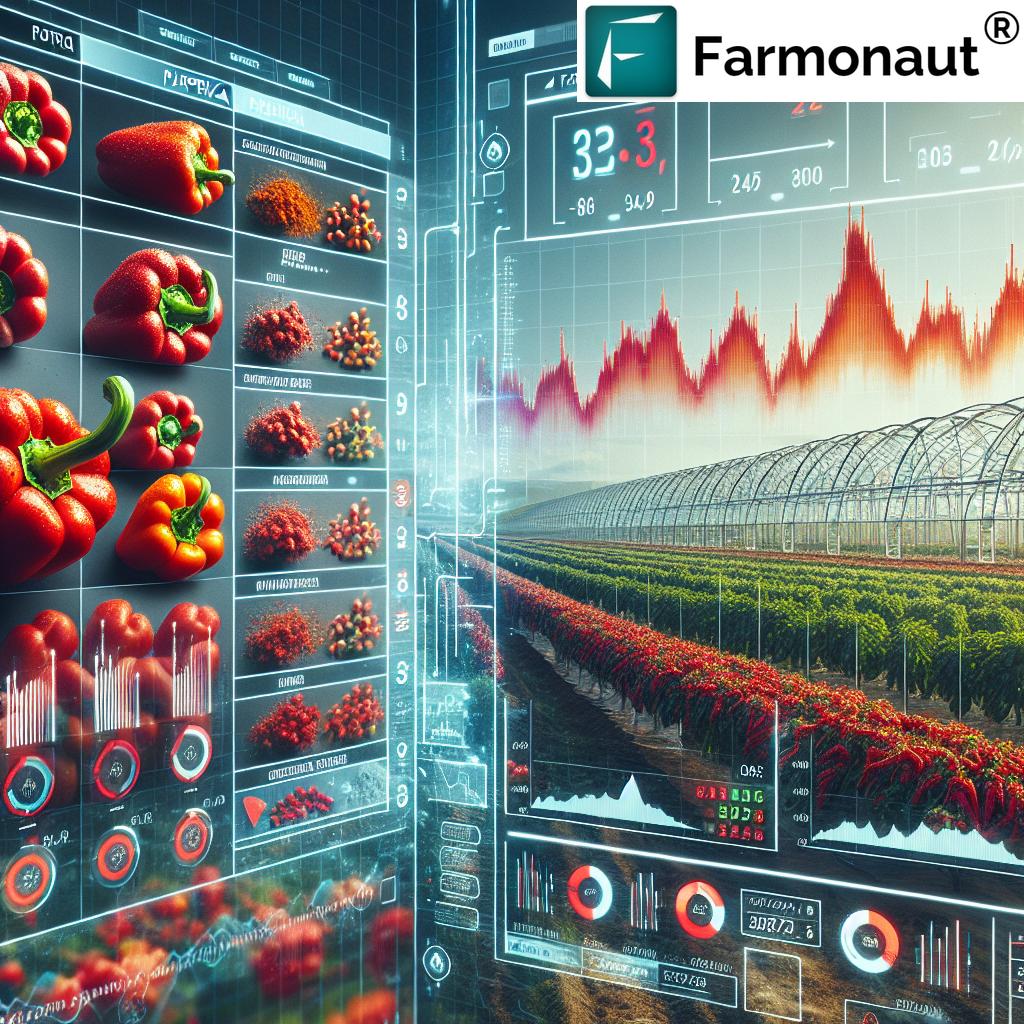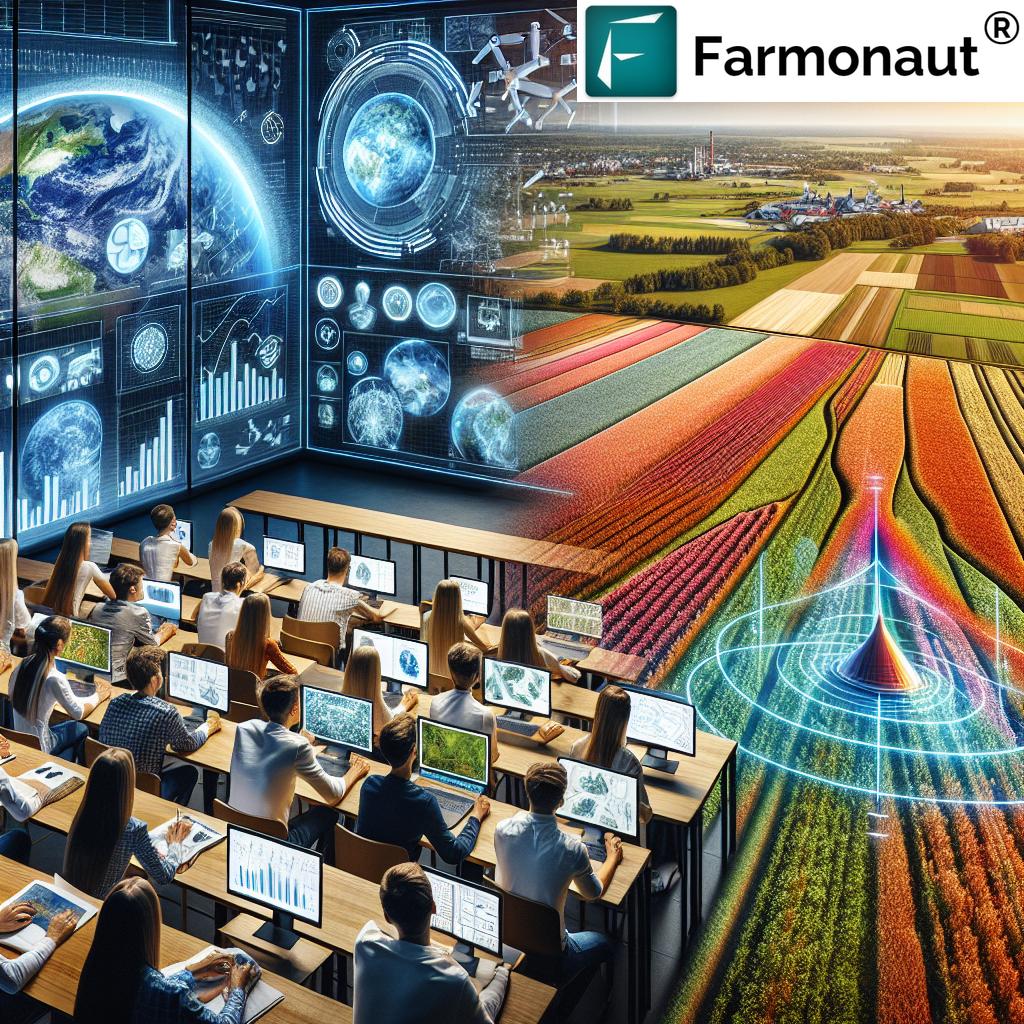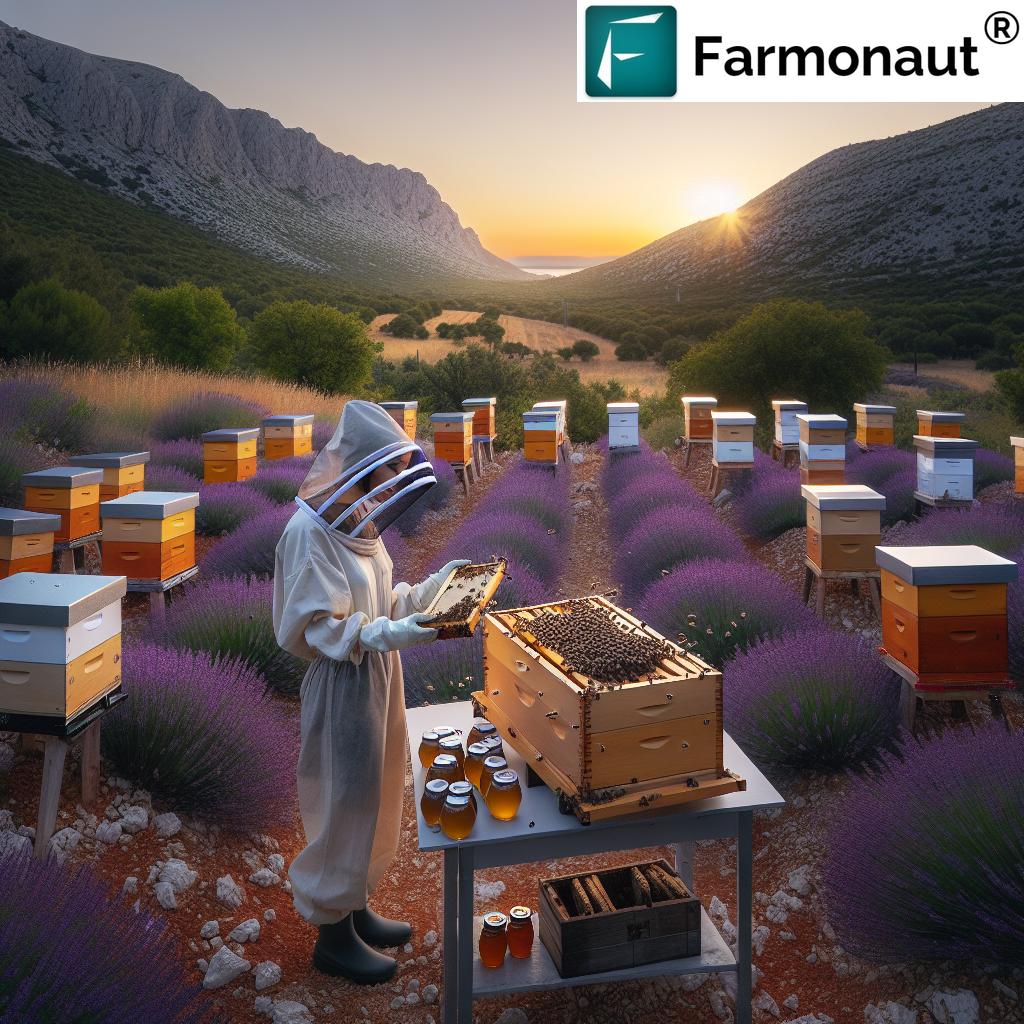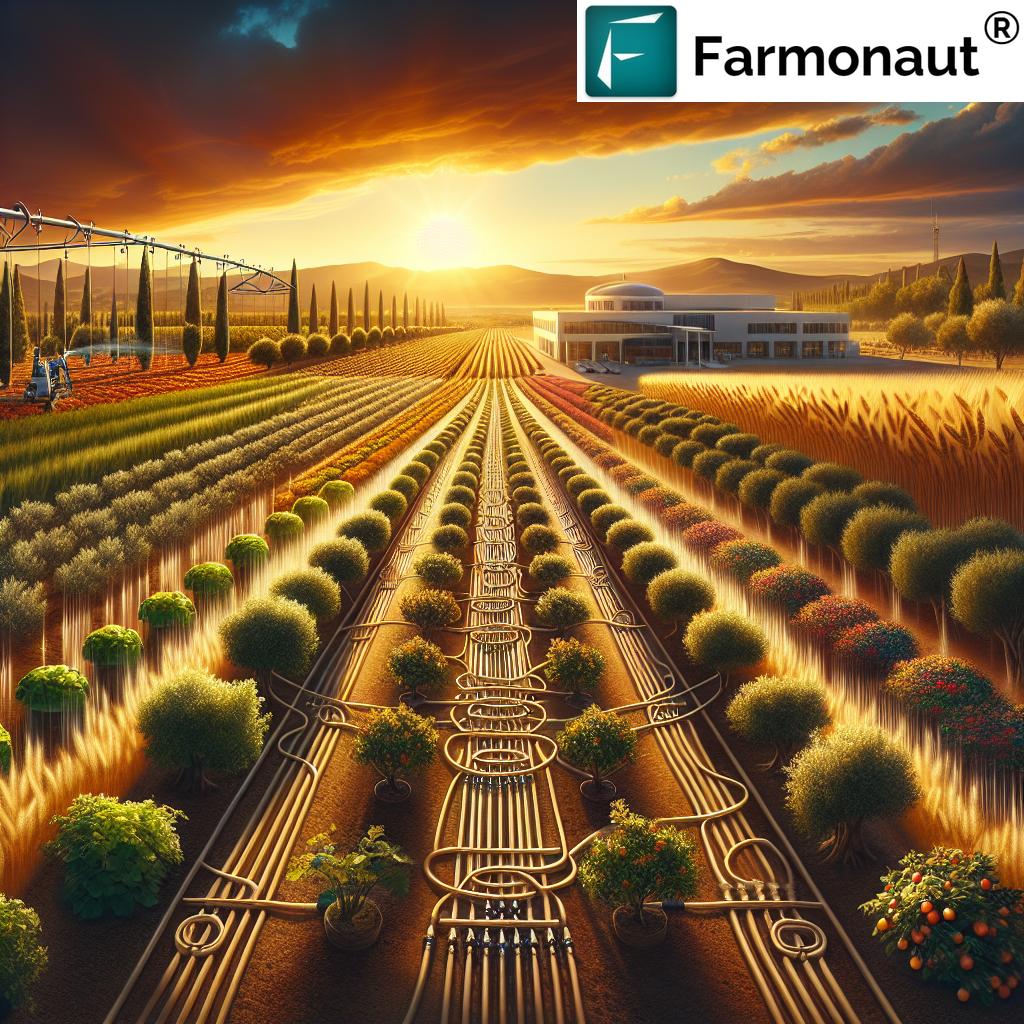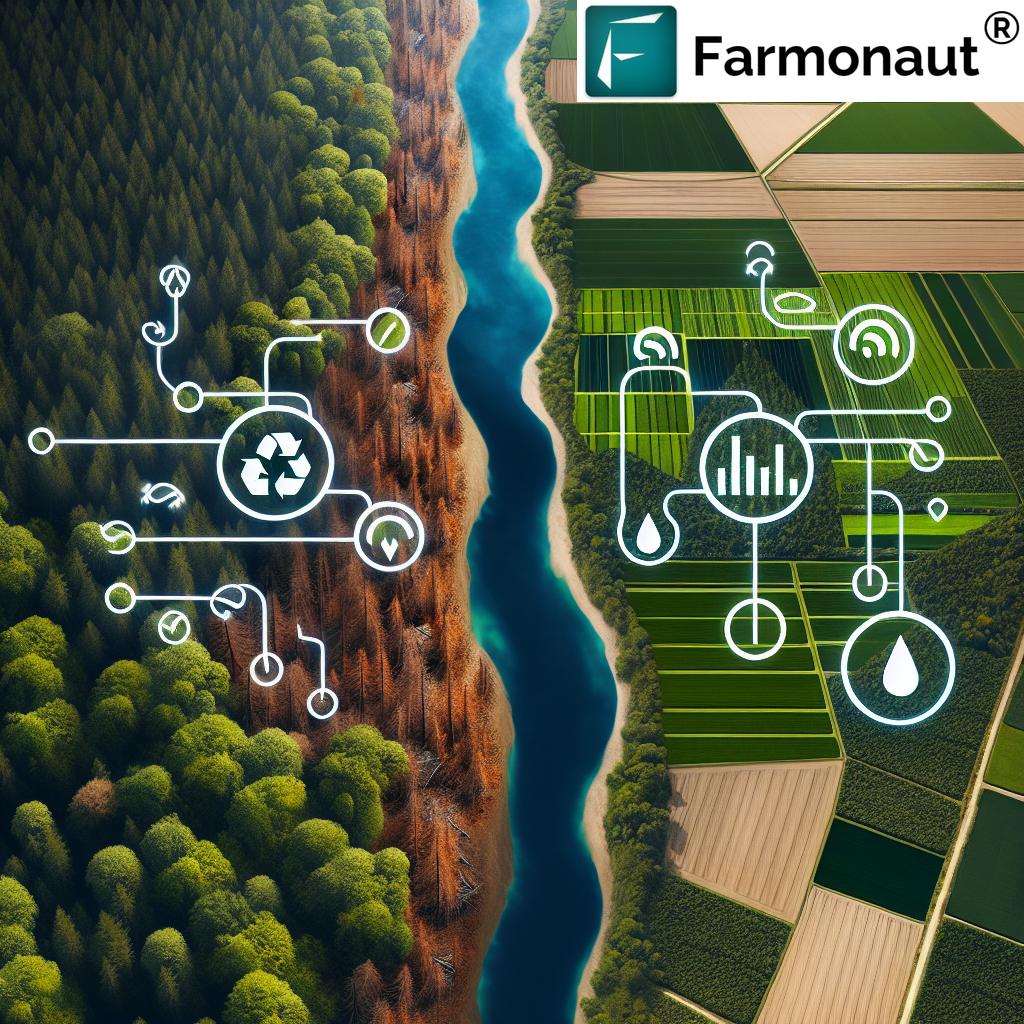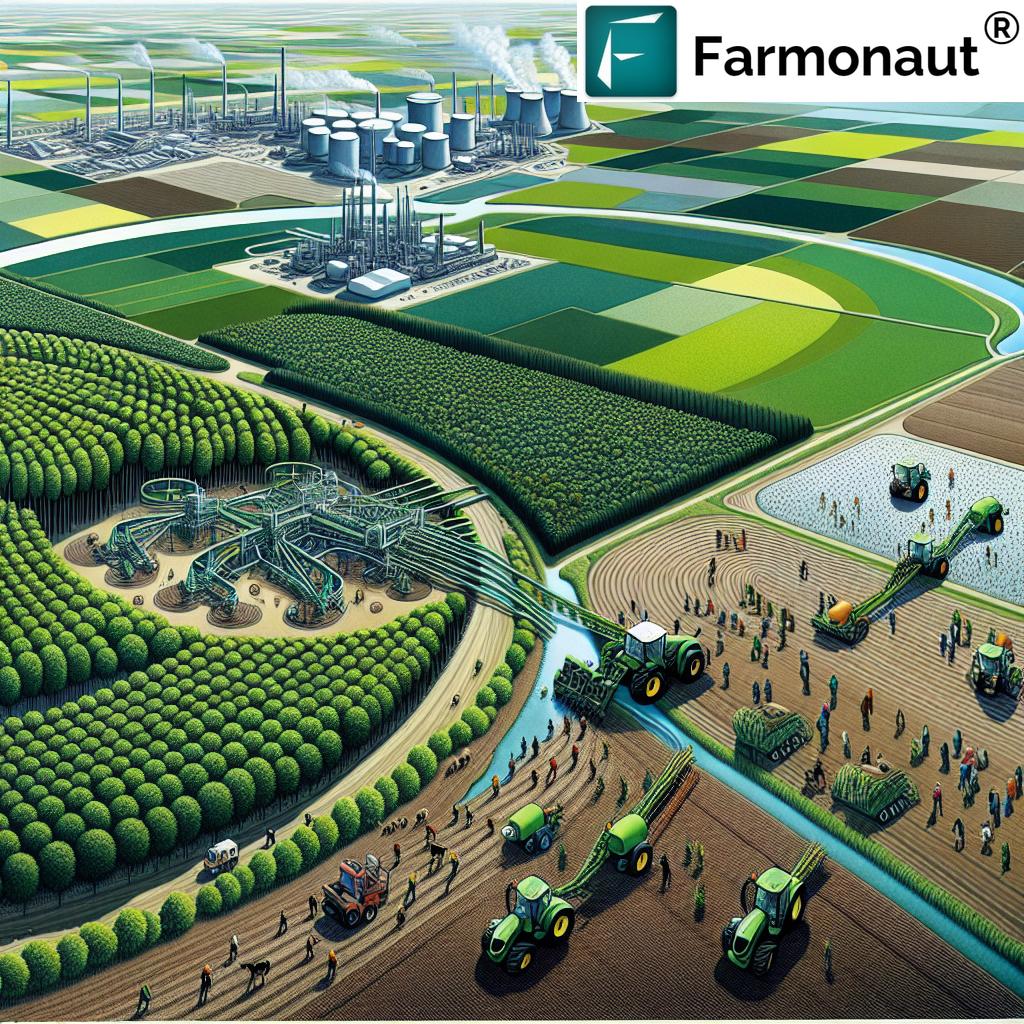Ukraine-Russia Agreement: Analyzing the Impact on Black Sea Trade and Global Agriculture
“The new Ukraine-Russia agreements include a 30-day pause in energy attacks and naval operations in the eastern Black Sea.”
In a significant development for international diplomacy and global agriculture, the United States has brokered separate agreements with Ukraine and Russia, marking a potential turning point in the ongoing conflict. These deals, aimed at pausing attacks at sea and against energy targets, have far-reaching implications for Black Sea trade and the global agricultural landscape. As we delve into the intricacies of these agreements, we’ll explore their potential impact on maritime security, grain exports, and the broader geopolitical context.
The Diplomatic Breakthrough
The recent agreements between Ukraine and Russia, facilitated by the United States, represent the first formal commitments since recent leadership changes. This diplomatic milestone comes after intense negotiations and efforts to mediate the conflict that has disrupted global trade and agricultural markets for years.
Key aspects of the agreements include:
- A 30-day pause in energy attacks and naval operations in the eastern Black Sea
- Potential relief from international sanctions on Russian agriculture and fertilizer exports
- Commitments to resume crucial grain exports from Ukrainian ports
These developments offer a glimmer of hope for de-escalation and the restoration of vital trade routes. However, skepticism remains on both sides regarding the implementation and long-term implications of these agreements.

The Black Sea Truce: Implications for Maritime Trade
The Black Sea truce is a crucial component of the agreements, addressing the maritime challenges that have plagued the region since the outbreak of hostilities. This pause in naval operations has the potential to revitalize trade routes and resume the export of essential commodities, particularly grain.
For agricultural technology companies like Farmonaut, which provides satellite-based farm management solutions, the resumption of maritime trade could lead to increased demand for precision agriculture tools. As farmers and agribusinesses seek to optimize their production to meet renewed export opportunities, technologies that offer real-time crop health monitoring and AI-based advisory systems may become even more valuable.
Potential Impact on Grain Exports
Ukraine, known as the “breadbasket of Europe,” has historically been one of the world’s largest grain exporters. The conflict severely disrupted this trade, leading to global food security concerns and price volatility. The new agreements aim to address these issues by facilitating the safe passage of grain shipments through the Black Sea.
Key considerations for the grain export revival include:
- Reopening and securing Ukrainian ports for international shipping
- Establishing safe corridors for cargo vessels in the Black Sea
- Implementing monitoring mechanisms to ensure compliance with the truce
The successful implementation of these measures could have a stabilizing effect on global grain prices and improve food security in importing nations.
Sanctions Relief and Its Implications
A significant aspect of the agreements is the potential relief from international sanctions on Russian agriculture and fertilizer exports. This development could have far-reaching consequences for global agricultural markets and supply chains.
“This diplomatic breakthrough marks the first formal commitments between Ukraine and Russia since recent leadership changes.”
The lifting of sanctions could lead to:
- Increased availability of Russian fertilizers in the global market
- Potential stabilization of fertilizer prices
- Improved agricultural productivity in regions dependent on Russian inputs
However, the implementation of sanctions relief is contingent on several factors, including the restoration of links between Russian banks and the international financial system. This aspect of the agreements has already sparked debate and skepticism among the parties involved.
The Role of Technology in Agricultural Resilience
As the agricultural landscape evolves in response to these geopolitical shifts, the role of technology in ensuring food security and agricultural resilience becomes increasingly important. Platforms like Farmonaut’s mobile app and API offer farmers and agribusinesses tools to adapt to changing market conditions and optimize their operations.
Key technological solutions include:
- Satellite-based crop health monitoring
- AI-driven personalized farm advisory systems
- Blockchain-based product traceability for supply chain transparency
- Carbon footprint tracking for sustainable agriculture practices
These technologies can help farmers make informed decisions, improve productivity, and adapt to the evolving global agricultural landscape shaped by the Ukraine-Russia agreements.

Challenges and Skepticism
Despite the potential benefits of the agreements, significant challenges and skepticism remain on both sides. The implementation of the deals faces several hurdles:
- Trust deficit between Ukraine and Russia
- Complexity of lifting international sanctions
- Potential for violations and the need for robust enforcement mechanisms
- Ongoing geopolitical tensions and conflicting interests of various stakeholders
Both Kyiv and Moscow have expressed reliance on Washington to enforce the deals while voicing doubts about the other side’s commitment to upholding the agreements.
The Role of International Mediation
The United States’ role in brokering these agreements highlights the importance of international mediation in resolving complex geopolitical conflicts. The success of these deals could set a precedent for future diplomatic efforts in the region and beyond.
Key aspects of the mediation process include:
- Parallel talks in neutral locations
- Direct communication between leaders facilitated by mediators
- Balancing the interests of multiple stakeholders, including European allies
The ongoing negotiations and the potential for future talks underscore the fluid nature of the situation and the need for continued diplomatic engagement.
Impact on Global Agriculture and Food Security
The Ukraine-Russia agreements have significant implications for global agriculture and food security. As two major players in the agricultural sector, the resumption of trade and potential sanctions relief could reshape international markets.
Key areas of impact include:
- Stabilization of global grain prices
- Improved access to fertilizers for developing countries
- Potential shifts in global agricultural trade patterns
- Enhanced food security in import-dependent nations
For companies like Farmonaut that provide agricultural technology solutions, these changes present both challenges and opportunities. The API Developer Docs offer insights into how such technologies can adapt to and support the evolving needs of the agricultural sector.
Comparative Analysis of Black Sea Trade Impact
| Factor | Pre-Agreement Status | Potential Post-Agreement Impact |
|---|---|---|
| Black Sea Grain Exports (estimated million tons) | 20 | 35 |
| Russian Fertilizer Exports (estimated million tons) | 15 | 25 |
| Maritime Security Level (scale of 1-10) | 3 | 7 |
| Energy Infrastructure Attacks (estimated monthly frequency) | 20 | 5 |
| International Sanctions on Russian Agriculture (severity scale) | 8 | 4 |
| Global Grain Prices (estimated USD/ton) | 300 | 250 |
| Food Security in Importing Nations (scale of 1-10) | 5 | 8 |
This table provides a clear overview of the potential impacts of the Ukraine-Russia agreements on various aspects of Black Sea trade and global agriculture. It illustrates the significant changes that could occur in areas such as grain exports, maritime security, and food security in importing nations.
The Role of Technology in Adapting to New Agricultural Realities
As the agricultural landscape evolves in response to these geopolitical shifts, technology will play a crucial role in helping farmers and agribusinesses adapt. Platforms like Farmonaut offer innovative solutions to address the challenges and opportunities presented by the changing global agricultural market.
Key technological advancements include:
- Real-time crop monitoring using satellite imagery
- AI-driven predictive analytics for crop yields and market trends
- Blockchain-based supply chain traceability for enhanced transparency
- Precision agriculture tools for optimizing resource use and productivity
These technologies can help stakeholders in the agricultural sector make informed decisions, improve efficiency, and respond effectively to market changes resulting from the Ukraine-Russia agreements.
Long-term Implications and Future Outlook
While the immediate focus is on implementing the agreements and resuming trade, the long-term implications of these developments are far-reaching. The success or failure of these deals could shape the future of international diplomacy, global trade patterns, and agricultural markets for years to come.
Key considerations for the future include:
- The potential for further diplomatic breakthroughs in the region
- Shifts in global agricultural supply chains and trade routes
- The evolving role of technology in ensuring food security and agricultural resilience
- The impact on international sanctions regimes and their effectiveness
As these developments unfold, stakeholders across the agricultural sector will need to remain agile and informed. Tools like the  and
and  can provide valuable insights and support in navigating these changes.
can provide valuable insights and support in navigating these changes.
Conclusion
The Ukraine-Russia agreements represent a significant milestone in the ongoing conflict and have the potential to reshape Black Sea trade and global agriculture. While challenges and skepticism remain, the deals offer hope for improved maritime security, resumed grain exports, and potential sanctions relief.
As the situation evolves, the role of technology in agriculture becomes increasingly important. Companies like Farmonaut, with their advanced satellite-based farm management solutions, are well-positioned to support farmers and agribusinesses in adapting to the changing landscape.
The coming months will be crucial in determining the success of these agreements and their impact on global food security, agricultural markets, and international relations. Stakeholders across the agricultural sector must remain vigilant, adaptable, and informed as they navigate these complex developments.
FAQ Section
- Q: What are the main points of the Ukraine-Russia agreements?
A: The agreements include a 30-day pause in energy attacks and naval operations in the eastern Black Sea, potential relief from international sanctions on Russian agriculture and fertilizer exports, and commitments to resume crucial grain exports from Ukrainian ports. - Q: How might these agreements affect global grain prices?
A: If successfully implemented, the agreements could lead to increased grain exports from Ukraine, potentially stabilizing and even lowering global grain prices. - Q: What role does technology play in adapting to these changes?
A: Agricultural technology, such as Farmonaut’s satellite-based farm management solutions, can help farmers and agribusinesses optimize their operations, make informed decisions, and adapt to changing market conditions resulting from these agreements. - Q: What are the main challenges in implementing these agreements?
A: Key challenges include the trust deficit between Ukraine and Russia, the complexity of lifting international sanctions, and the need for robust enforcement mechanisms to ensure compliance. - Q: How might these agreements impact food security in importing nations?
A: If successful, the agreements could improve food security in import-dependent nations by increasing the availability and potentially reducing the cost of grain and other agricultural products.
Earn With Farmonaut: Affiliate Program
Earn 20% recurring commission with Farmonaut’s affiliate program by sharing your promo code and helping farmers save 10%. Onboard 10 Elite farmers monthly to earn a minimum of $148,000 annually—start now and grow your income!


